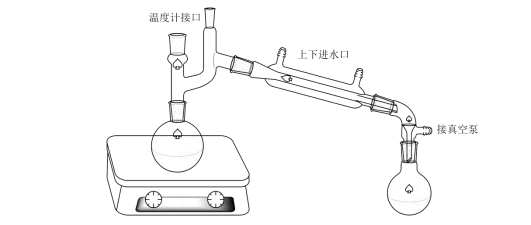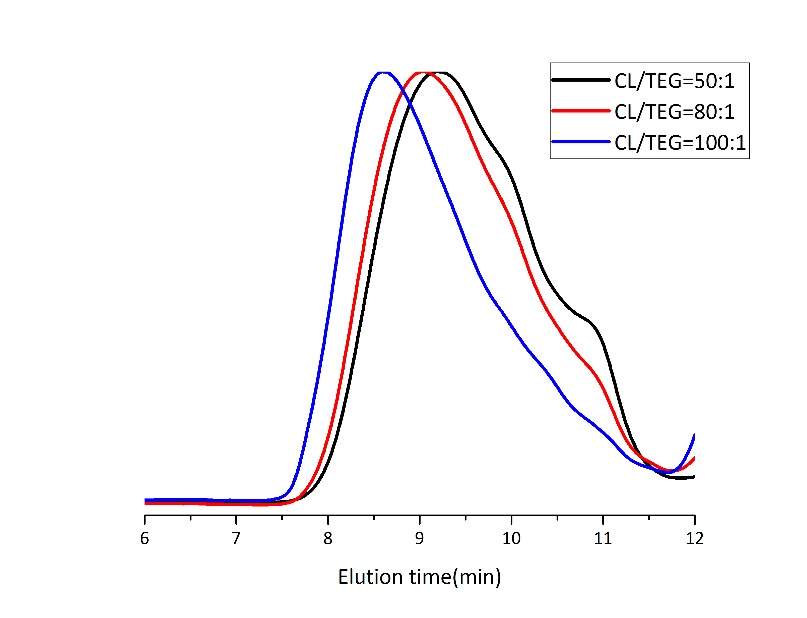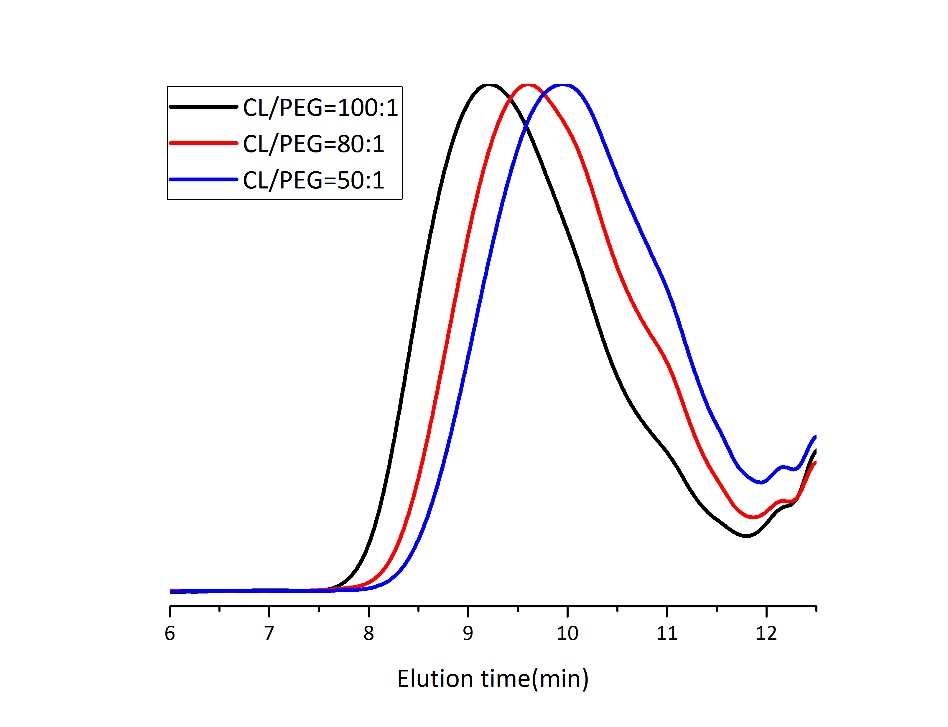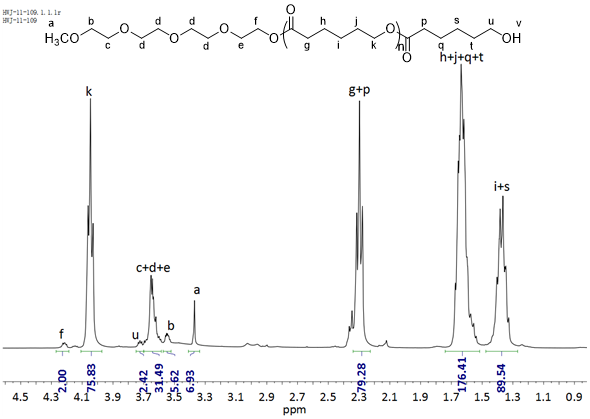水溶液中聚合诱导自组装聚酯纳米粒子的合成毕业论文
2020-04-26 12:58:29
摘 要
近年来,聚酯纳米颗粒因其良好的生物降解性和相容性具有广阔的市场前景,是最重要的生物医学材料之一。本课题分别设计了水溶液中聚合诱导自组装有机催化聚己内酯的合成、不同单体比的有机聚合催化合成聚酯纳米粒子的实验。在利用聚合诱导自组装水溶液有机催化合成聚己内酯的实验中,设定催化反应温度为100℃。通过改变单体与引发剂的摩尔比[1],从 30:1 调大到 100:1,反应时间为 24h,关于水溶液中聚合诱导自组装聚酯纳米分子,对其聚酯纳米分子进行了表征,并对其自组装行为进行了研究。所做的工作主要有以下内容:
- 以TEG/PEG为引发剂,己内酯为单体,在100℃开环聚合24小时,合成了链末端为TEG/PEG链的聚己内酯(PCL)。该长链聚合物具有两性共聚性,其中中间聚己内酯部分具有疏水性,长链末端的TEG/PEG链具有亲水性。在水溶液聚合诱导过程中,链中聚合物会自发组装成球状物质。PISA纳米粒子的形态可以通过调节分子量和单体浓度来控制。
- 另外,通过微通道反应器进行水溶液聚合诱导自组装PISA 纳米粒子,可以实现反应速率的提高以及PISA纳米粒子形态的调控。
本课题利用微反应器系统有机催化的过程,结合了有机催化的特点,极大地提高了反应效率,减少了反应时间,实现了pisa纳米粒子的高效合成、尺寸均一、结构多异的优点。
关键词:聚合诱导自组装 聚酯纳米粒子 两亲性嵌段共聚物 微通道反应器
Synthesis of self-assembled Polyester nanoparticles induced by polymerization in aqueous solution
Abstract
In recent years, polyester nanoparticles are one of the most important biomedical materials because of their good biodegradability and compatibility.In this study, the experiments of polymerization-induced self-assembly catalyzed synthesis of polycaprolactone in aqueous solution and the synthesis of polyester nanoparticles catalyzed by organic polymerization with different monomer ratios were designed. In using aqueous solution polymerization induced self-assembly organic catalytic synthesis of poly (caprolactone experiment, set catalytic reaction temperature is 100 ℃. By changing the molar ratio of monomer to initiator from 30:1 to 100:1, the reaction time was 24h. The work mainly includes the following:
1. TEG/PEG as initiator, aqueous solution with caprolactone (CL) as the monomer, in the 100 ℃ after 24 h the ring opening polymerization reaction of TEG/PEG chain at the end of the chain poly (caprolactone (PCLS). The long chain polymer has amphoteric copolymerization, in which the intermediate polycaprolactan part has hydrophobicity, and the TEG/PEG chain at the end of the long chain has hydrophilicity. During the induction process of aqueous solution polymerization, the polymers in the chain spontaneously assemble into spherical substances. The morphology of PISA nanoparticles can be regulated by regulating the parameters such as different molecular weight and different monomer concentration.
2. In addition, the self-assembly PISA nanoparticles induced by aqueous solution polymerization through a micro-channel reactor can improve the reaction rate and regulate the morphology of the PISA nanoparticles.
In this project, the process of organic catalysis in the micro-reactor system was utilized, and the characteristics of organic catalysis were combined to greatly improve the reaction efficiency and reduce the reaction time, realizing the advantages of efficient synthesis of Pisa nanoparticles, uniform size and diverse structure.
Keywords: polymerization-induced self-assembly;polyester nanoparticle;Amphiphilic block copolymer;micro-channel reactor
目录
第一章 文献综述 5
1.1聚合诱导自组装 5
1.2 诱导嵌段聚合物自组装的方法 6
1.2.1阴离子聚合诱导自组装方法 6
1.2.2活性自由基聚合诱导自组装方法 6
1.3在微通道反应器中实现有机催化的聚合 6
1.3.1微通道反应器的性质与特点 6
1.3.2反应器构建的可行性分析 7
1.4 有机催化开环聚合反应 8
1.5本课题的研究思路及意义 8
第二章 水溶液中聚合诱导自组装聚酯纳米粒子的合成 10
2.1实验部分 10
2.1.1实验试剂与仪器 10
2.1.2 实验方法 11
2.2表征分析 14
2.2.1 核磁共振(NMR) 14
2.2.2 凝胶渗透色谱(GPC) 14
2.3结果与讨论 15
2.3.1 芳基功能化聚己内酯的合成 15
2.3.2 表征分析 15
2.3.3微反应器中聚合诱导自组装的表征分析 17
2.3.4 聚酯纳米粒子的形貌 20
第三章 结论与展望 24
1. 不同形貌的聚酯纳米粒子的制备; 24
2. 不同的种类的单体在此耦合反应中体系中的共聚; 24
3. 溶剂对合成聚酯纳米粒子的影响; 24
参考文献 25
致谢 26
- 文献综述
1.1聚合诱导自组装
相关图片展示:
